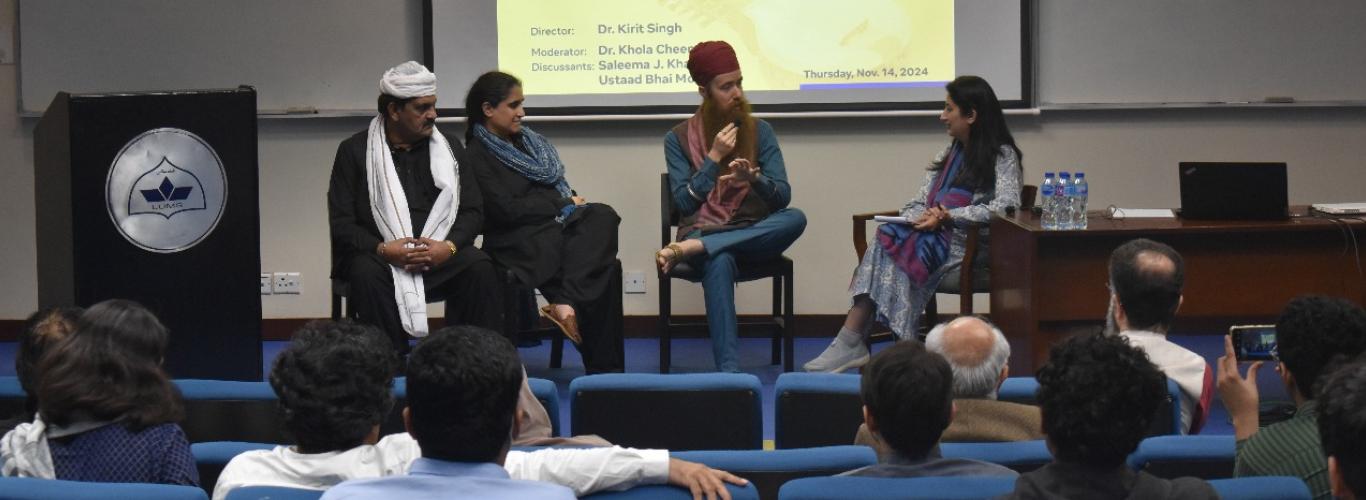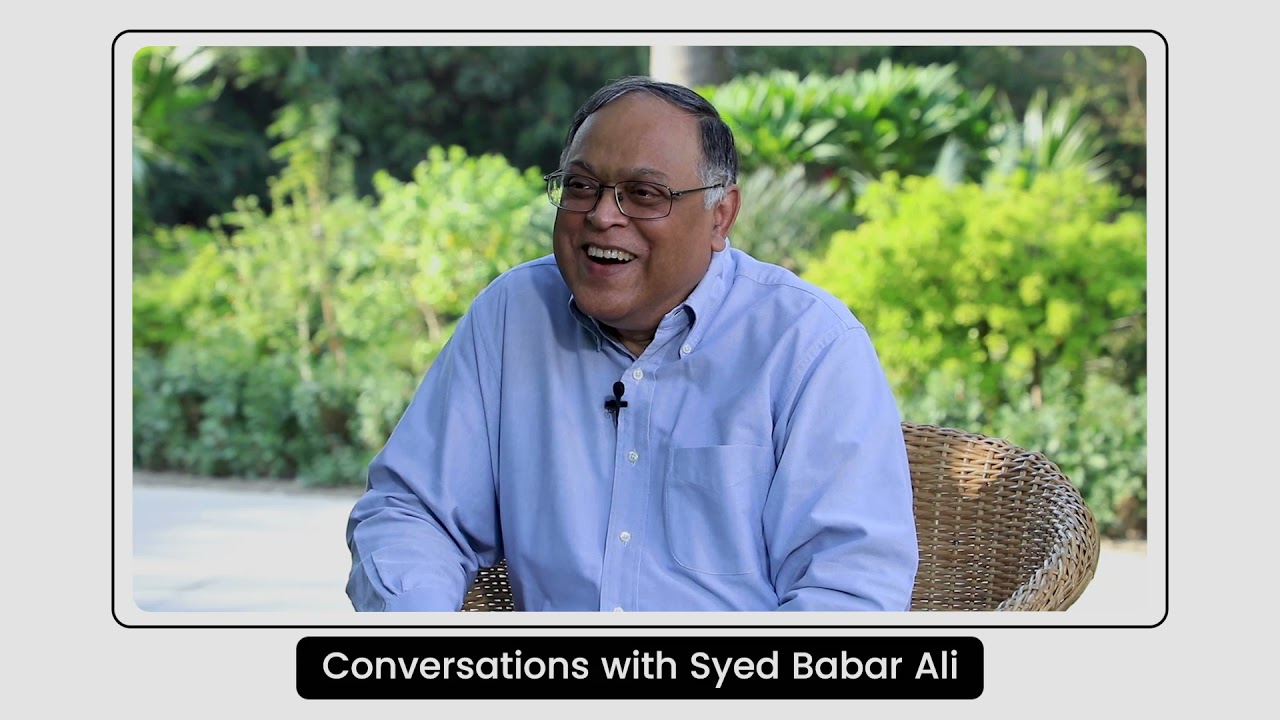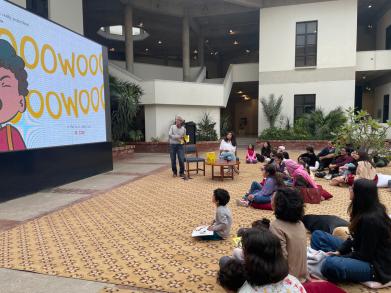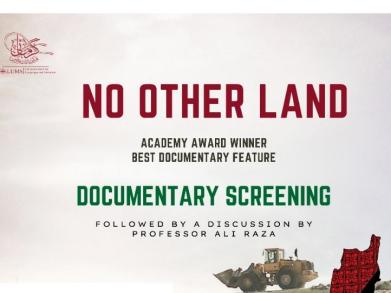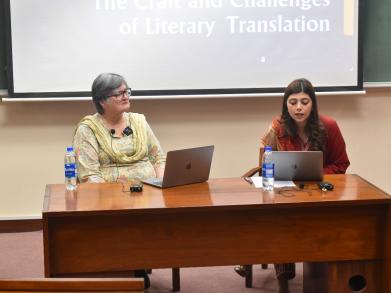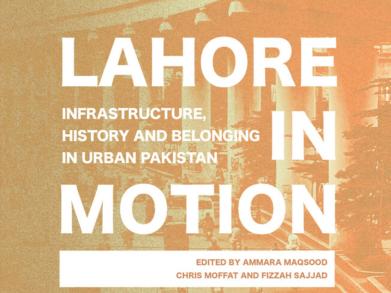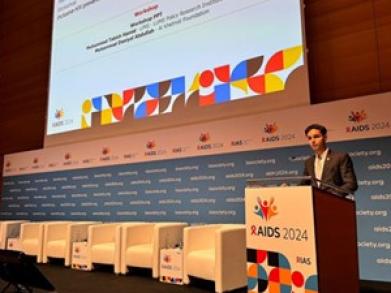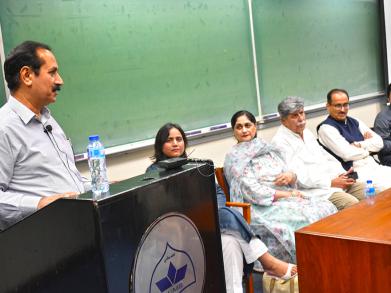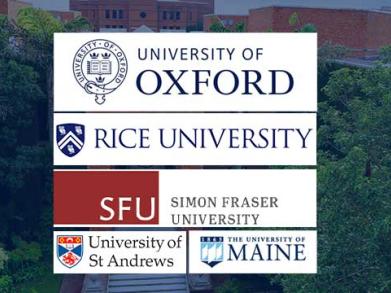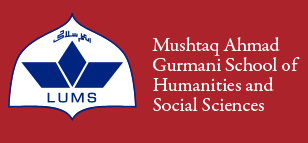Mardana’s Children: Rababis of Lahore
The Gurmani Centre for Languages and Literature hosted a documentary film screening of Mardana’s Children: Rababis of Lahore. This short film tells the story of the Rababi community in Lahore, a group of Muslim musicians with deep historical ties to Sikhism, rooted in a centuries-old musical tradition that began with Guru Nanak and his Muslim companion, Bhai Mardana. Despite the enduring impacts of colonialism, the violent upheavals of the 1947 Partition, and ongoing political tensions between India and Pakistan, the music of the Rababis continues to embody a wisdom that transcends national and religious boundaries.
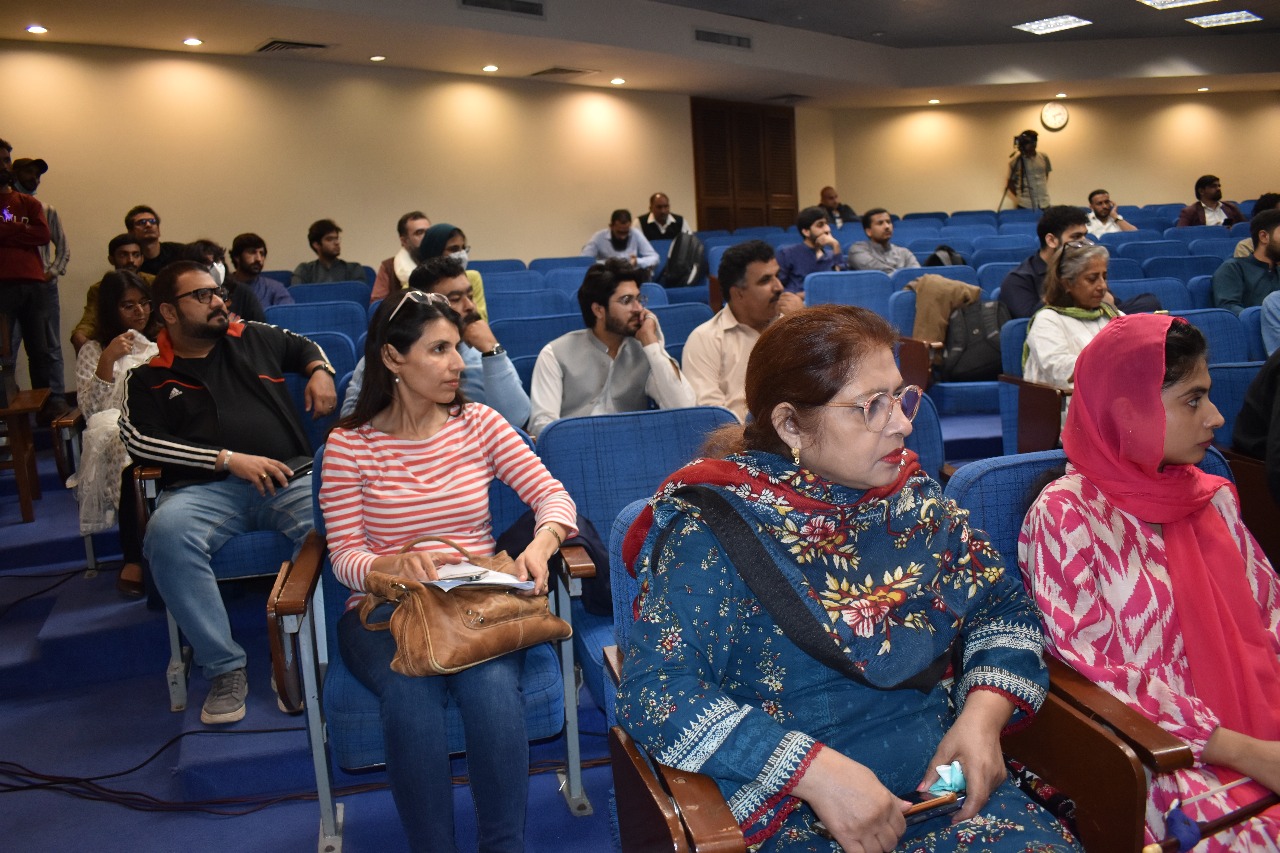
Following the screening, a panel discussion was held, featuring Dr. Kirit Singh, Saleema J. Khwaja, and Ustad Bhai Moeen, moderated by Dr. Khola Iftikhar Cheema. The discussion focused on the heritage of hereditary Muslim musician-devotees who served the Sikh Gurus and their followers, spreading the universal messages of saints like Kabir, Namdev, Farid, and the Sikh Gurus through their music.
Dr. Kirit Singh opened the discussion by presenting insights from his doctoral thesis, which explores how the Sikh community patronized music in the post-colonial period. He highlighted how his research intertwines with the documentary, which serves as both a testament to his findings and a tribute to the donors who supported his fieldwork in Pakistan and India. Dr. Kirit elaborated on the role of the Rababi communities in preserving Sikh musical traditions and examined the factors behind their historical prominence and subsequent decline. He also discussed the Kirtan tradition and the Namdhari community of Ludhiana, a sect within Sikhism known for its distinctive musical practices.
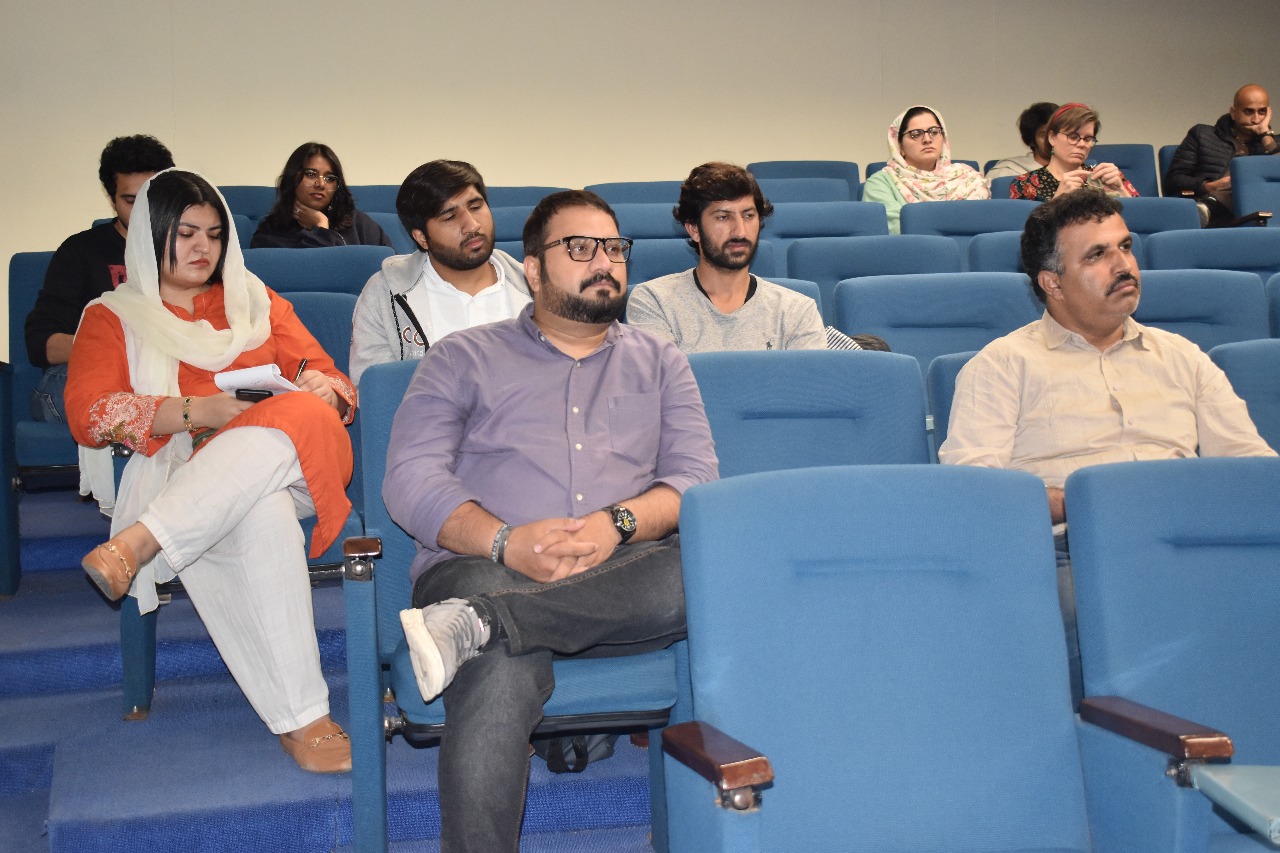
Ms. Saleema Khwaja followed by addressing the marginalization and exclusion faced by the Rababi community over time. She traced the impact of the Partition and subsequent socio-political changes, which led to the diminishing role of Rababis within Sikh religious and cultural traditions, resulting in the erosion of their once-flourishing cultural and spiritual legacy.
Ustad Bhai Moeen concluded the discussion by sharing personal anecdotes from the golden era of the Rababi tradition. He offered heartfelt recollections of his father, Bhai Chand, a renowned Rababi of the Golden Temple, and highlighted the pivotal role the Rababi community played in Sikh music. His reflections provided an intimate view of the contributions and challenges faced by this unique musical tradition.

The event served as a poignant reminder of the shared cultural heritage that unites communities across religious and national divides, and the importance of preserving such traditions for future generations.
The session was followed by a remarkable Shabad Kirtan performance by the Rababis of Lahore to celebrate Baba Guru Nanak’s birth anniversary on November 15, 2024. The event, titled “Musical Recital on Prakash Purab of Sri Guru Nanak Sahib Ji” brought together a stellar lineup of performers who captivated the audience with their heartfelt renditions.
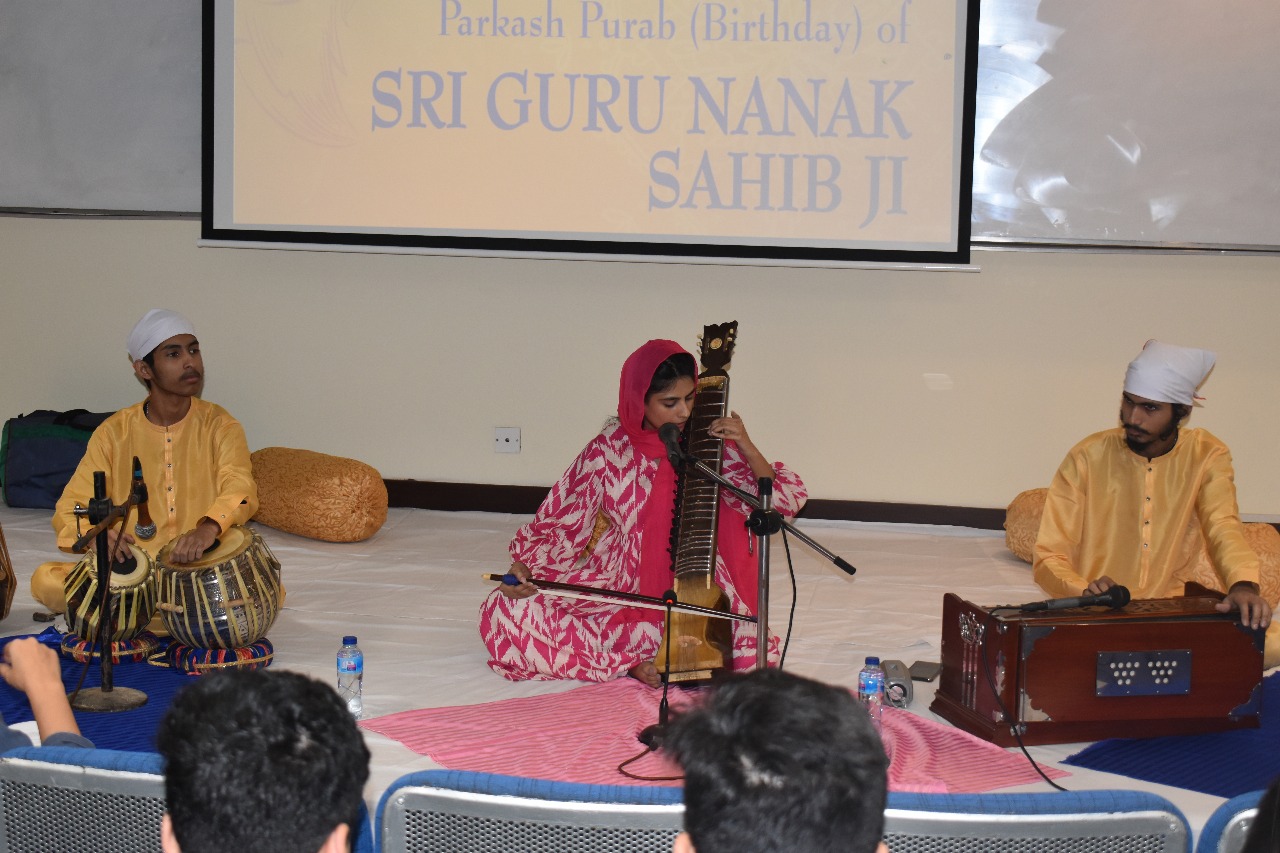
Ustad Bhai Moeen and his team, alongside Ustad Bhai Tahir Iqbal and his ensemble, presented soul-stirring melodies that honored the spiritual legacy of Guru Nanak. Saleema Jawwad Khwaja, Dr. Kirit Singh, and the Gurmat Sangeet Sewa Group also contributed to the event with powerful performances, infusing the gathering with a deep sense of devotion.
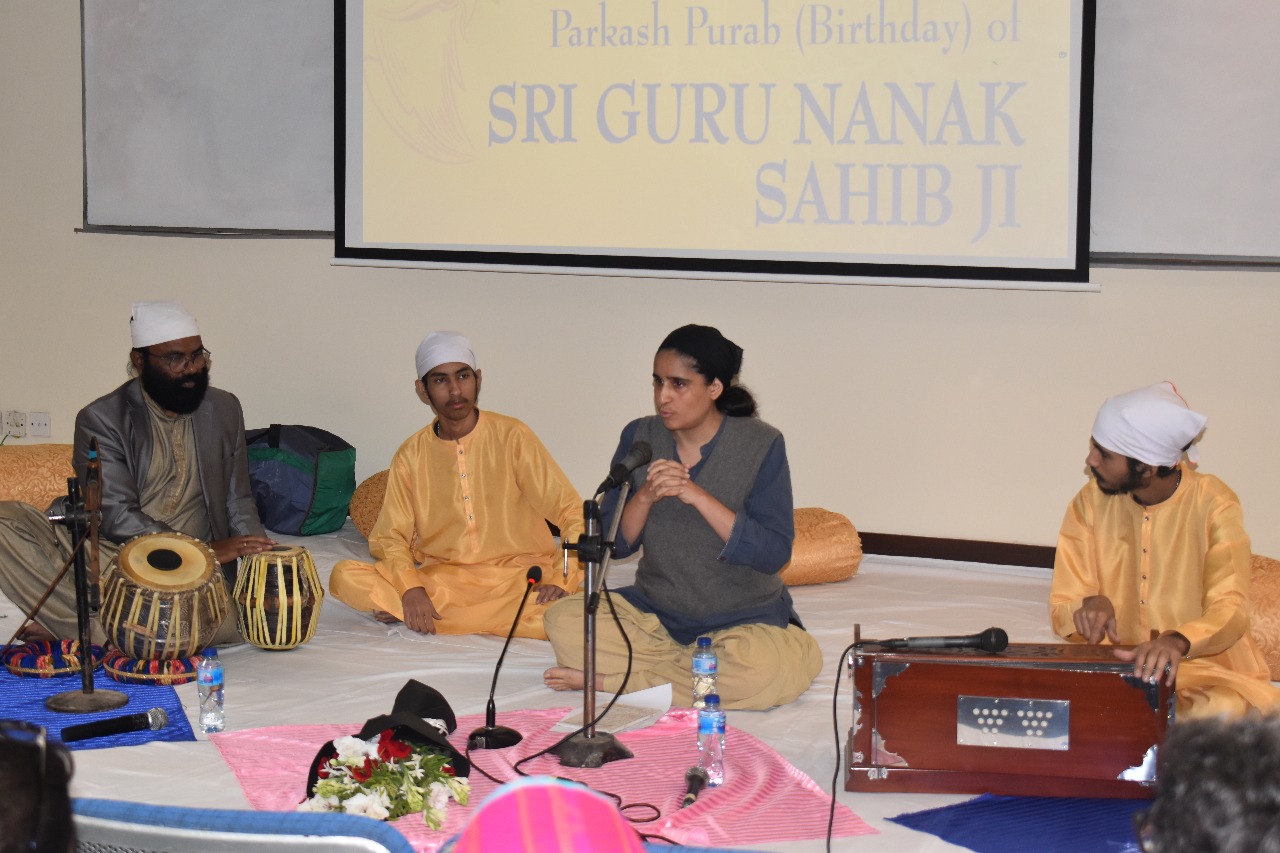
The evening celebrated not only the timeless teachings of Guru Nanak but also the enduring heritage of Shabad Kirtan, bridging centuries-old traditions with contemporary expressions of faith and music. It was a vibrant tribute to shared histories and the pluriversal messages of peace and harmony.

